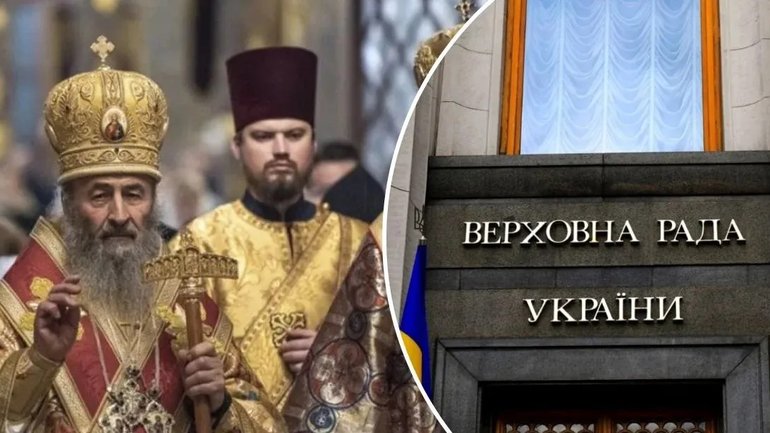The religious scholar explained what Bill 8371 adopted by the Rada provides for

Religious scholar Andrii Smyrnov explained what Bill 8371 provides for:
- The activities of the Russian Orthodox Church in Ukraine are prohibited. The UOC-MP cannot be part of the structure of the ROC or otherwise affiliated with it.
- The activities of the UOC-MP are not allowed, and its religious organizations are terminated in court 9 months after the publication of the law.
- The State Service of Ukraine for Ethnic Policy and Freedom of Conscience studies, approves and publishes a list of religious organizations affiliated with the ROC.
- The UOC can continue its activities if it breaks administrative ties with the ROC.
- Simplification of transitions of parishes and monasteries to the OCU.
- Contracts for the use of state property concluded with the UOC-MP are terminated ahead of schedule.
- Free rent of state and municipal property by religious organizations.
- Propaganda of the neocolonial ideology of the “Russian world” is prohibited.
The religious scholar predicts that the law will facilitate and accelerate the process of transition of some parishes of the UOC-MP to the OCU.
In particular, communities that use state-owned churches will decide whether to transfer or look for new premises.
“Still, as long as the UOC is led by Metropolitan Onufriy, the unification with the OCU will not take place. Therefore, there are several scenarios: negotiations with the Ecumenical Patriarchate and litigation with the state, and then going underground and marginalization,” Andrii Smyrnov predicts.
However, he emphasizes that the parishes of the UOC-MP (those with their own churches not in state ownership) will continue to function even after court bans. And these are the majority.
“They are not in danger even after the court terminates the registration of a legal entity. Communities can operate without registration and register their churches in the names of individuals. Believers of the UOC will continue to be able to gather and pray in them,” the expert noted.









